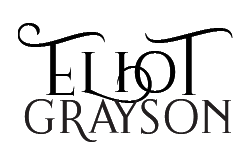
The third confusing, vaguely disturbing email came in with a ping on the Friday afternoon right before midterms.
Still desperately trying to get my Chem 101 exam organized, I almost ignored the sound from my laptop. I had the questions scrawled on sticky notes, and I’d been shifting them around on the whiteboard trying to make sure I’d really covered everything and hadn’t given away the answer to one question in another.
But any port in a storm, and at this point, my whiteboard resembled a category three hurricane.
I dropped into my desk chair and opened up my email.
And then wished I hadn’t.
Dr. McEwen:
I would like to remind you that I am still awaiting a reply to my two previous messages. Please respond immediately. The opportunities I can offer you are much greater than you can imagine, and working with us would benefit you and your pack. I would much prefer to meet you at a time of your choosing, but we will need to meet.
Sincerely,
Dr. Geoff Greenwald
Director of Research
Initech Corporation
The first email had been a lot like others I received occasionally: a vague reference to a job in the private sector, and a suggestion to get in touch. I’d trashed it. Academia might not have the money, but I subscribed to the Ray Stantz philosophy of desirable employment: I didn’t want to work for anyone who expected results. I couldn’t even produce enough results—at least not the kind that led to profits and patents—to keep the university happy, let alone a company with a bottom line.
The second email had come two weeks later, and it had also included a reference to my pack. Plenty of werewolves and other magical species attended and worked at Southern Oregon Tech, and I certainly didn’t hide that I’d been sired by a were, but it wasn’t exactly on my university webpage.
And it didn’t seem like something a prospective employer ought to care about.
I’d found it a little unsettling, honestly.
This email, a week after the second, pushed me past unsettled and into nervous.
Was the threatening undertone just my imagination? The last sentence of that email suggested that Dr. Geoff Greenwald was going to—what, stalk me? Kidnap me? Obviously not. Right?
Because that would be crazy. My research was fascinating—I mean, of course it was, it was my research—and it had a lot of potential, eventually. Stimulating dormant supernatural genes in phenotypically human subjects could lead to activating healing abilities in humans, curing all kinds of diseases in people with the right DNA. Or to gaining strength and enhanced senses.
Or to finally becoming what you should have been, if only your chromosomes hadn’t let you down at a crucial point in fetal development.
That last one probably didn’t rank high on Initech Corporation’s list of reasons for trying to recruit me.
I shifted uncomfortably in my chair. That last one wasn’t even hinted at in any of my research proposals. If anyone found out about it, I’d be so screwed and so fired.
But anyway.
My research had a lot of potential. Maybe. But it also straddled that line between magic and hard science that a lot of researchers on both sides of that particular aisle turned up their noses at. You were a chemist, or a sorcerer. Not both. Especially when you didn’t have any magical abilities to begin with, like me. Magic-users hated the idea of the sciences figuring out how they did what they did, in some kind of quantifiable way, and scientists hated anything they couldn’t quantify.
Not to mention that other researchers had gone down this road before, and they’d never come up with anything. Connecting specific magical properties to specific molecular structures hadn’t worked in the past.
Of course, those researchers weren’t me. And I was arrogant enough to think that would make the difference.
But either way, my grant proposals were, at this point, a matter of form, or possibly my own version of masochism. No one ever approved them. I got by without any assistants, without any specialized equipment. Basically, I had the same resources as a grad student, only I could access the labs whenever I wanted to without a professor signing off. My startup funding from when I’d gotten hired had nearly run out.
I lived in a tiny apartment and ate a lot of ramen so I could afford to buy my own reagents.
Initech might fund me, whoever the hell they were. I’d looked at their website, but it redefined bland and noncommittal, like the internet version of a chain dentists’ office. It didn’t exactly inspire me. Dr. Greenwald didn’t have a profile on any of the usual professional sites, either.
And I didn’t trust anyone who wrote emails like Greenwald did, anyway.
Shit.
The urge to swipe all the printouts, highlighters, empty coffee cups, and sticky notes off my desk and onto the floor came over me. Again. My fingers twitched, itching to grab my phone and call Colin, like I always wanted to when I needed a sounding board.
But Colin was too busy to bother with my annoyance over a few emails.

Recent Comments